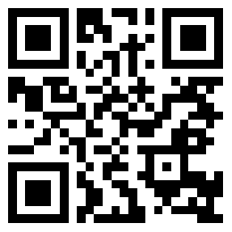US Extends Certain Chinese Product Exclusions from Section 301 Tariffs by a Year to Mid-2025
TMTPost-- The Office of the United States Trade Representative (USTR) announced on Friday the further extension of certain exclusions in the Section 301 Investigation of China’s Acts, Policies, and Practices Related to Technology Transfer, Intellectual Property, and Innovation, which is scheduled to expire on May 31, 2024.
Credit:Xinhua News Agency
The USTR determined to provide a 14-day transition period for all current 429 product specific exclusions including 352 previously reinstated exclusions and 77 Covid19-related exclusions, extending them through June 14, 2024, according to a Federal Register notice released on Friday. It also disclosed USTR’s determination to extend certain exclusions through May 31, 2025, which means a further extension period of a year. Those exclusions that are subject to a one-year extension include categories such as dispensers of hand-cleaning or hand-sanitizing solutions, engines each having a displacement of more than 2 liters but not more than 2.5 liters, and lectric motors, with an output of 18.65 W or more but not exceeding 37.5 W, with attached cables, designed for use in adjusting motor vehicle seats.
The U.S. government led by former President Donald Trump used Section 301 of the Trade Act of 1974 to launch the China tariffs in 2018 and 2019. For these additional duties, the USTR established a process by which interested persons could request the temporary exclusion of particular products subject to the action, and has granted exclusions for a limited time, most expired in 2019 and 2020. In March, 2022, the USTR decided to reinstated 352 expired exclusions through December 31,2022, then these exclusions were extended through September 30, 2023. It also extended 77 of Covid-related exclusions through end of last September.
To allow for consideration under a four-year review of the aforementioned tariff-related actions starting from 2022, the USTR said last September that it decided to extend all the current exclusions through the end of 2023. On December 29, 2023, the USTR made public about an interim extension of the exclusions through May 31, 2024.
To clarify the latest one-year extension of certain exclusions, the USTR said it has found that the move will support efforts to shift sourcing out of China, or provide additional time where, despite efforts to source products from alternative sources, availability of the product outside of China remains limited.
The USTR also has determined not to extend the remaining exclusions beyond the 14-day transition period, which suggested a total of 102 exclusions will face tariffs again. USTR said no public comments requested further extension for the batch of exclusions. For these exclusions, public comments do not demonstrate that further extending the exclusion would aid efforts to shift sourcing out of China in the near term or do not demonstrate that products covered by the exclusion are unavailable outside of China, the USTR said in the notice. The affected product categories include garage-door openers, switches used in motor vehicles, printed circuit board assemblies, electric motorcycles, natural graphite and an array of duffel and messenger bags.
The USTR decision to extend certain Chinese tariff exclusions was the latest move regarding Section 301 Tariffs on Chinese imports in less than two weeks. The White House announced on May 12 that U.S. PresidentJoeBiden directed his Trade Representative to increase tariffs under Section 301 of the Trade Act of 1974 on $18 billion of Chinese imports in order toprotect American workers and American companies from China’s unfair trade practices.Preisent Biden is directing increases in tariffs across strategic sectors such as steel and aluminum, semiconductors, electric vehicles, batteries, critical minerals, solar cells, ship-to-shore cranes, and medical products,the White House said at its statement.
According to the statement, the Biden administration will sharply ratchet up tariffs on semiconductors, EVs,EV batteries, battery parts, solar cells and steel and aluminum, and impose new tariffs on cranes and medical products. Specifically, the tariff rate on EVs under Section 301 will increase to 100% in 2024, quadrupling the current tariff of 25%. The tariff rate on semiconductors will increase from 25% to 50% by 2025. The tariff rate on lithium-ion EV batteries will increase from 7.5%% to 25% in 2024, while the tariff rate on lithium-ion non-EV batteries will increase from 7.5% to 25% in 2026. The tariff rate on battery parts will increase from 7.5% to 25% in 2024. The tariff rate on certain steel and aluminum products under Section 301 will increase from 0–7.5% to 25% in 2024. The tariff rate on solar cells (whether or not assembled into modules) will increase from 25% to 50% in 2024.The tariff rate on ship-to-shore cranes will increase from 0% to 25% in 2024. The tariff rates on syringes and needles will increase from 0% to 50% in 2024.








 +61
+61 +86
+86 +886
+886 +852
+852 +853
+853 +64
+64


